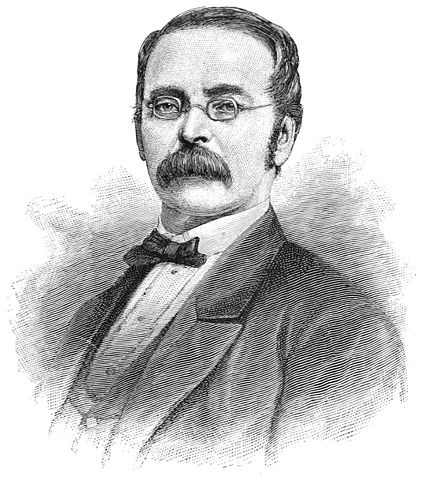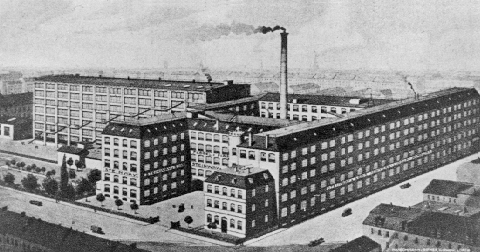To build the best piano possible
- 15. February 2017 - Birthdays, Emigration, German-American, Hamburg, Personalities, General
On 15 February 1797, Heinrich Engelhard Steinweg was born in Wolfshagen/Harz in Northern Germany. Can you guess? Later known as Henry E. Steinway, the founder of one of the leading piano manufacturers of the world, Steinway and Sons, was a German emigrant.
Heinrich, orphaned at the age of 15, became a cabinet-maker and organ builder. In 1825 he opened his own business in Seesen. Only allowed to repair instruments, he had – according to a legend – to build his first grand piano in the kitchen of his house (the so-called „kitchen piano“). By 1850, he had already built 482 pianos.
Departure to America
In spite of this well doing business the family decided to emigrate to America. They weren’t alone, as the 19th century was a time of mass migration from Germany especially to the United States. Between 1846 and 1849 2.000 people left the Duchy of Brunswick alone. One of the reasons for the Steinweg family might have been the problematic customs situation between the Duchy of Brunswick, including Seesen, and the surrounding Kingdom of Hanover. It must have been a problem for piano sales.
The family arrived in New York on 29 June 1850 and settled down. One son, Karl, had already arrived in 1849. Another one, C. F. Theodor, stayed in Germany to run the family business for the time being. In New York Heinrich and his sons worked at several piano companies to learn local trade practices. The German name Steinweg was soon changed into Steinway and the first names anglicized as well.
Innovation and marketing of a family business – The keys to success
On 5 March 1853, Henry E. Steinway and his sons founded their own business. Steinway & Sons soon became successful. In 1860 the first big factory building was opened in Manhattan. Another one followed in 1870 in Astoria, today a part of Queens. It is in operation until today. When the brothers Henry Jr. (Heinrich) and Charles (Karl) died, Theodore (Theodor) came from Germany in 1865 to help his brothers William (Wilhelm) and Albert with the family business.
In 1857, the first patent was registered. Many others followed, until today 128 in total. Theodore alone was responsible for 45 patents. A huge part of the company’s success originated in these technological innovations. Always respecting the vision: „To build the best piano possible.“
Another reason for the success were the marketing skills of William. In 1866, the first Steinway hall was opened in New York. Next to showrooms there was a big concert hall, becoming one of the leading venues in the city. William organized tours of famous European musicians in America as well, letting them play on Steinway pianos. Steinway Artists, committing to play only Steinway pianos, originated here.
On 7 February 1871, Henry E. Steinway died in New York at an age of almost 74. Steinway & Sons remained a family business until 1972, being sold by Henrys great-grandson.
From Hamburg to the rest of the world
There is a close connection between Hamburg and Steinway & Sons since 1880. This was the year in which the first Hamburg factory in Schanzenstraße was established. In 1928 another one, bigger than the first, was opened in Hamburg-Bahrenfeld. Until today it is the only production facility of Steinway pianos outside of America. The city was probably chosen due to its free port and the German roots of the family. The New York factory supplies the American market, Hamburg supplies the „rest of the world“. The instruments slightly differ optically and are often thought to sound differently, too. But both have their fans.
By the way, also interesting for genealogists (sometimes we are not only interested in the history of people but also of objects): Every Steinway piano has a unique serial number. On its basis it is possible until today to get information about model, finish, size, weight, date and place of manufacture as well as its sale. Therefore every Steinway instrument is as unique as every person we refer to in this blog.



0 comments